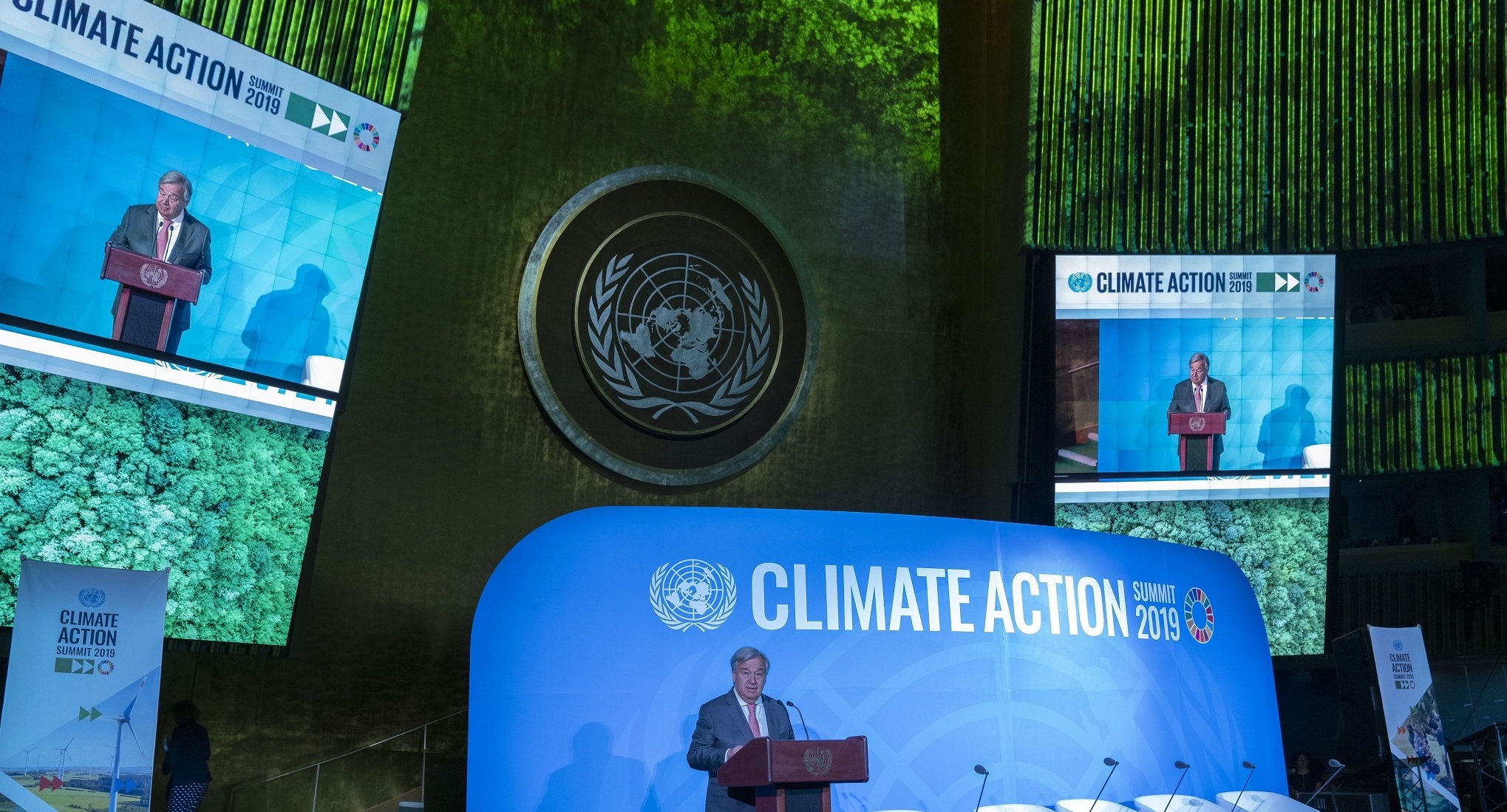24 September 2019
Central African forests' role in the fight against climate change and poverty was made clearer than ever. Their protection is vital to the 60 million people who depend on it, and to the planet’s future.
1. Leaders from Gabon, DRC and the Republic of Congo alerted the world
Ahead of the Summit, and in response to the call of the UN Secretary General, Gabon’s President Ali Bongo, sitting President of the CEEAC, reached out to fellow presidents of the region for concerted action to highlight the importance of Central African forests at the Summit.
DR Congo's President Félix Antoine Tshisekedi Tshilombo, speaking on behalf of the leaders of the sub-region during the high-level panel event "Unlocking the Power of Nature" on 23 September, set the tone by stating the dire consequences of forest loss for the DRC, neighbour countries and the planet, in a region that harbours close to 250 million hectares, but also gave hope with concrete engagements made to preserve forests & peatlands. At the UN General Assembly on 26 September, he reiterated his commitment: he vowed to increase comitments under the DRC's NDC, to work to maintain close collaboration so that all Central African countries speak with one voice when it comes to forests, and detailed concrete plans to reduce dependency on wood-energy, regulate forestry activities, and promote agroforestry and savannah-based activities.
In the last session of the summit, Republic of Congo’s Prime Minister Clément Mouamba spoke about his country’s commitment to maintain one of the lowest deforestation (0.05%) rates in the world.
2. German Chancellor, French President and the UN Secretary-General put Central African forests at the centre of the debate
During the High-level breakfast on forests on 23 September, Chancellor Angela Merkel recalled that" the preservation of rainforests in Africa is as important as it is in the Amazon region" and announced Germany’s contribution to CAFI (30 million euros).
Before the General Assembly, she also called for "countries to pool resources and act together", reminding the delegates that "the rainforest is crucial for the survival of humankind".
In his speech to the Assembly about the key role of tropical forests in the Amazon region and elsewhere, the French President Emanuel Macron noted that "the Congo Basin forest is essential to humankind", acknowledging the leadership role that Norway and Germany have taken globally, along with France’s contribution to CAFI.
“We saw new initiatives to unlock the power of nature, including by (....) protecting the Central African Forest and the 60 million people who depend on it,” concluded the UN Secretary-General in its remarks at closing of Climate Action Summit.
3. Gabon marked history as the first country in Africa to receive payments for preserved forests
The 150 million US dollars agreement announced on 22 September in the margins of Summit between Gabon and Norway, via CAFI, was historic in many ways. For the first time, an African country will be rewarded in a 10-year deal for both reducing its greenhouse gas emissions from deforestation and degradation, and absorptions of carbon dioxide by natural forests, making Gabon the first High Forest, Low Deforestation (HFLD) country to receive such payments. The partnership also provides Gabon with a major incentive for cutting greenhouse gases by setting a carbon price floor at 10 US dollars per certified ton (ART).
4. New donors stepped up with pledges (USD 50 million) for Central African forests...
Donors to the Central African Forest Initiative stepped up with important pledges to support ambitious climate and forest targets from six African countries hosting the second largest rainforest after the Amazon and one of the largest watersheds in the world.
At the Nature for Climate Hub on the sidelines of the summit on 22 September, the Republic of Korea announced a 2 million dollars contribution, which comes in addition to Germany’s pledge of 33 million US dollars (see above), while the European Commission had earlier this year announced a 17 US$ million contribution.
These donors seek to enhance existing preservation of rainforests across the six CAFI partner countries through a holistic approach that addresses all sectors affecting forests.
These contributions bring to five the number of contributors to the CAFI Fund. Bilateral cooperation agencies have also stepped forward in specific agreements, such as Germany’s Ministry of Environment (BMZ), France’s Development Agency (AFD) and UK’s Department for International Development (DFID) in the agreement recently signed in Paris with the Republic of Congo.
5. ...and called for scaled up action to prevent their drastic loss
While commitments from Central African countries to achieve ambitious climate and forests targets were met with increased funding by the EU, France, Germany, Norway, South Korea and the UK with CAFI, much more is needed, donors have warned.
Early warning signs, such as the unprecedented level and pace of forest loss observed in the past three years in some parts of the region, point to extreme risks. The world’s second largest tropical forest could undergo drastic change. Urgent, scaled up action – from governments, development finance institutions, investors and companies – is needed to tackle multiple threats to forests, said countries that are supporting CAFI in a call to action.

